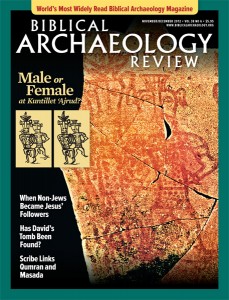Strata: Turkey and Iraq Make Archaeological Demands
In my First Person column in the September/October issue, I discussed the recent demands by Mediterranean countries for the return of antiquities from Western museums. I argued that sometimes a particular culture might have a claim superior to that of the country where an object was found.a As a hypothetical, I put the case of Egypt’s demanding from Israel the return of the first Tablets of the Law that Moses shattered when he came down from Mt. Sinai and found the Israelites worshiping the golden calf. Would Egypt have a claim superior to Israel’s because the tablets were found in the Sinai, now—and then, too—part of Egypt?
Since this column was published, two other “hard” cases are being discussed, one involving Turkey and the other Iraq.
Turkey is engaged in “an unprecedentedly bold campaign to bring back treasures that it believes were stolen, which now sit in Western museums,” according to an article in The Economist.1 Turkish authorities “are refusing to lend treasures abroad, dragging their feet on licensing foreign archaeological digs and launching public campaigns they hope will shame Western museums.”
Yet the star of the Istanbul Archaeological Museum is what some believe is the sarcophagus of Alexander the Great. Ironically, it was found in Sidon in what is now Lebanon. It was taken to Istanbul when the Ottoman empire ruled the area. How would Turkish authorities feel if Lebanon should demand its return?
Already a library member? Log in here.
Institution user? Log in with your IP address.

